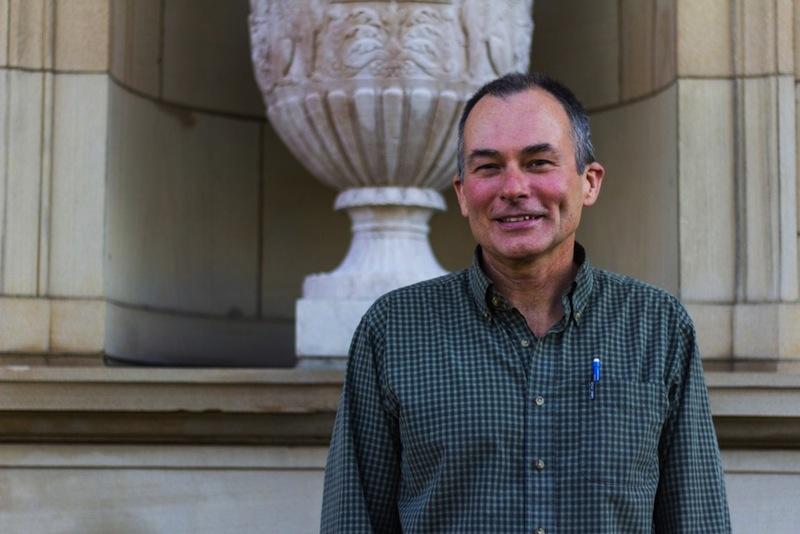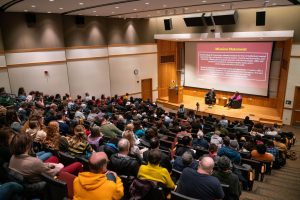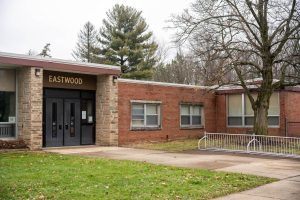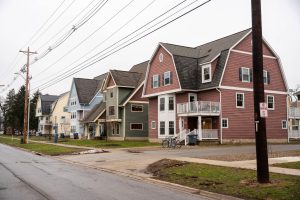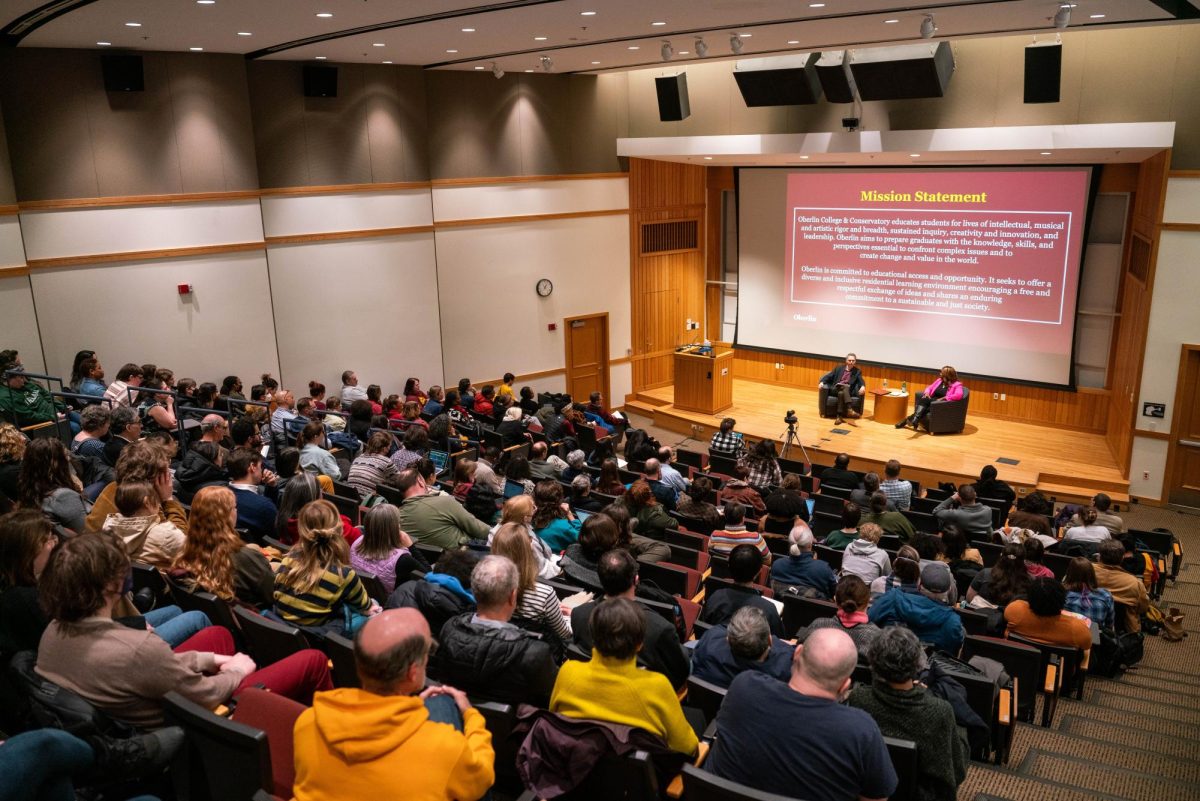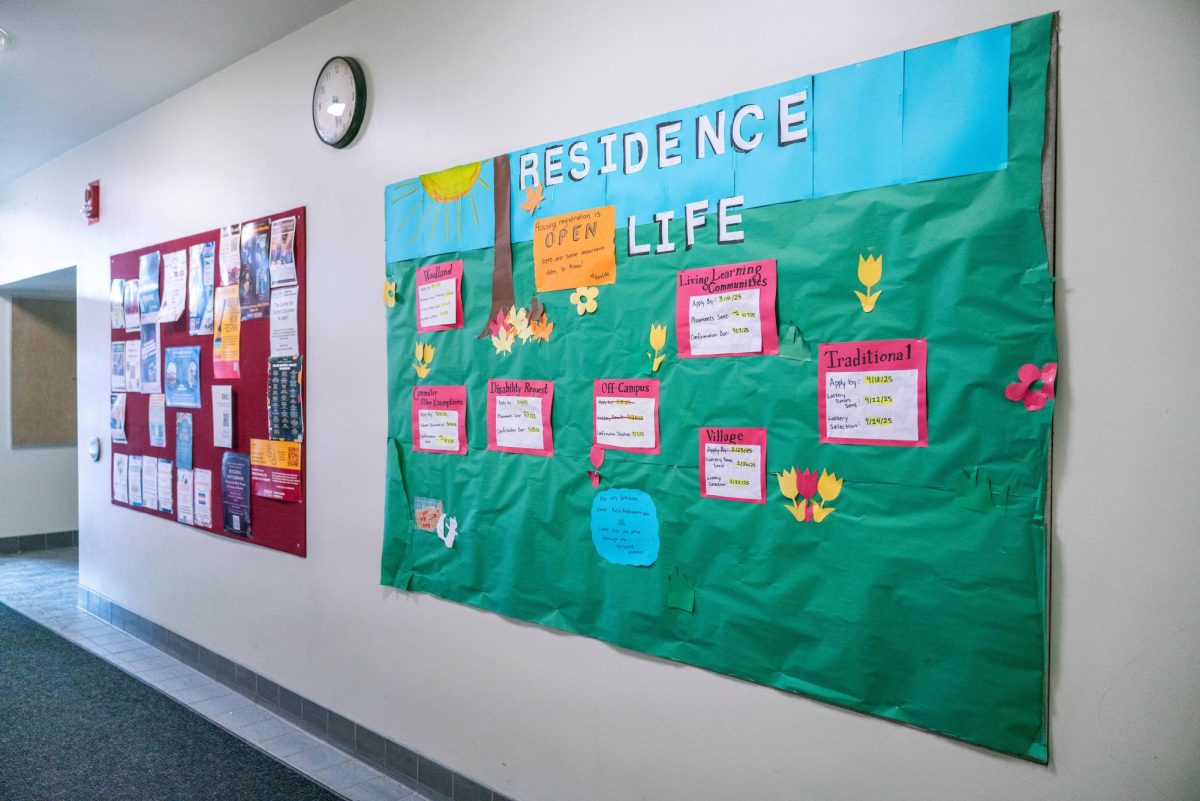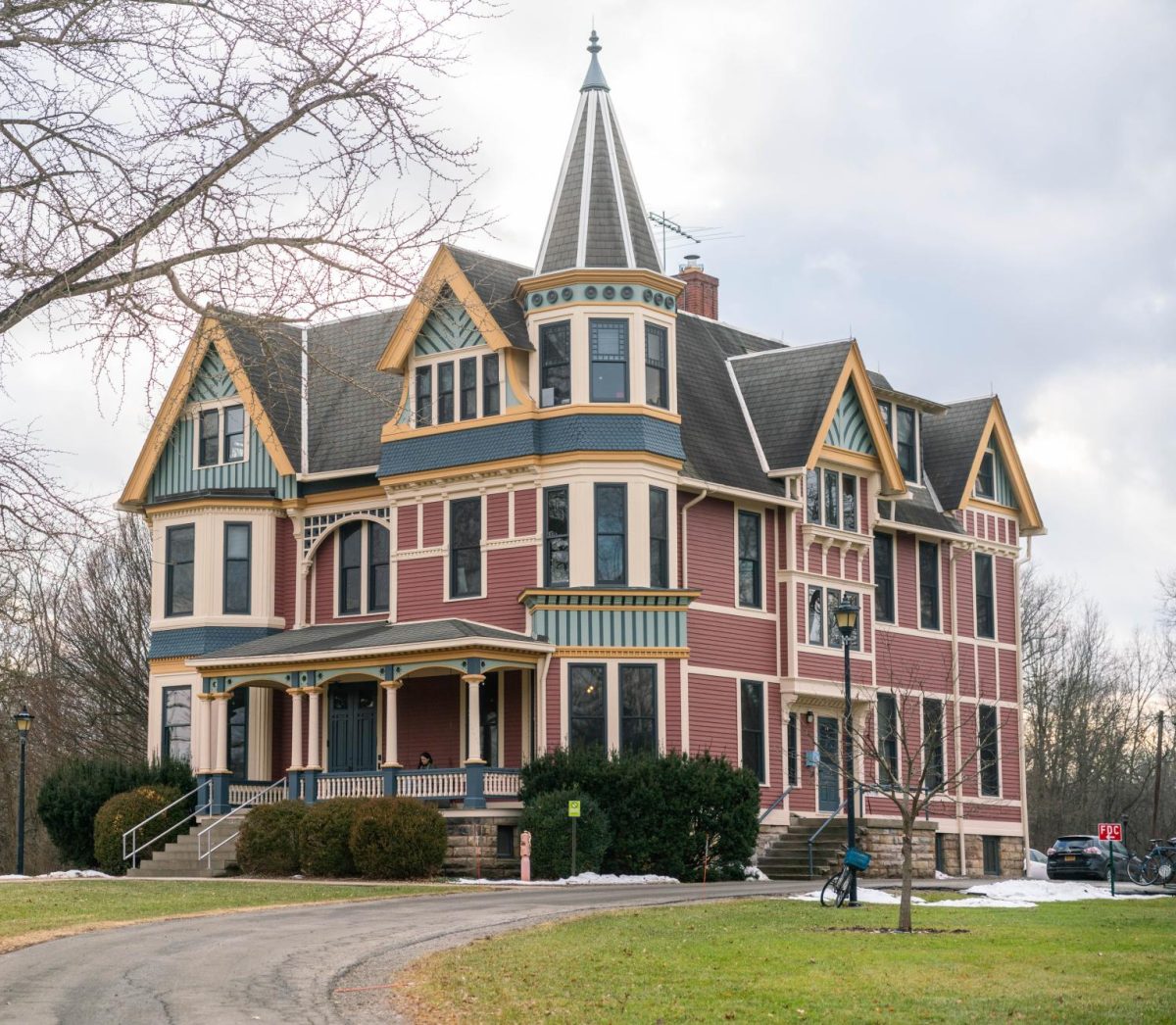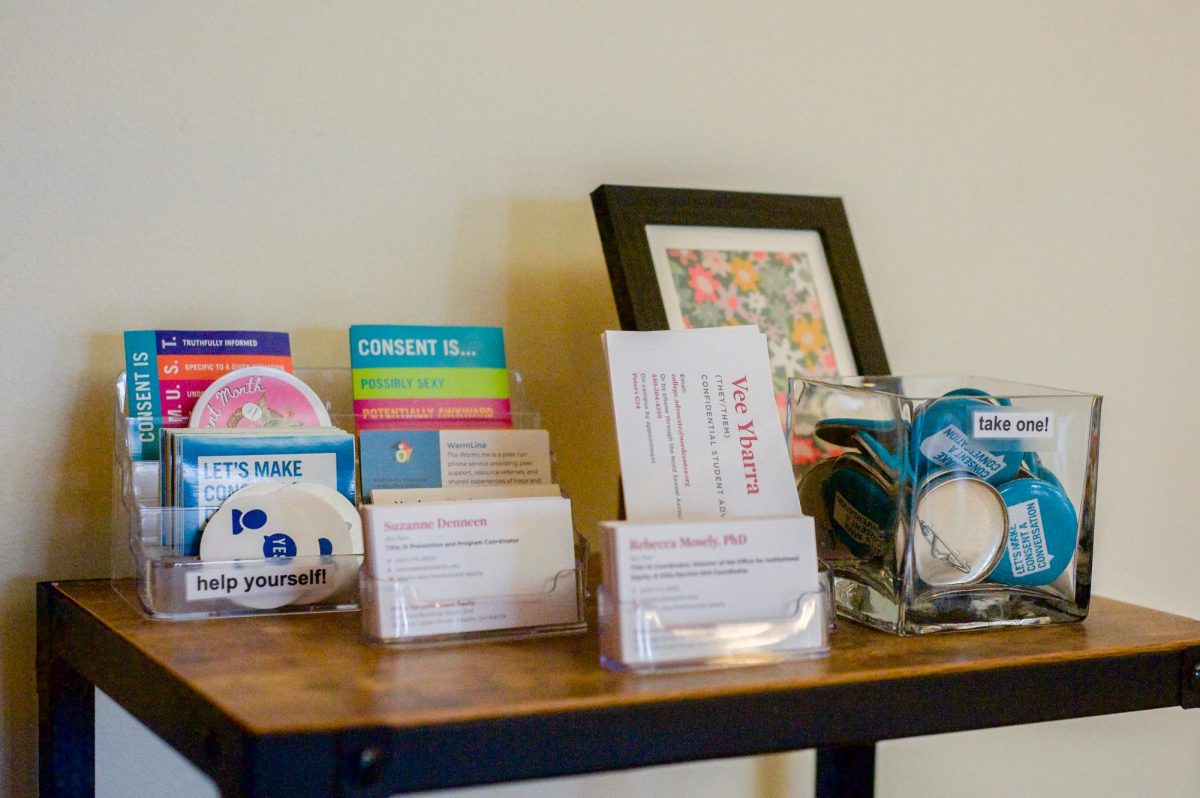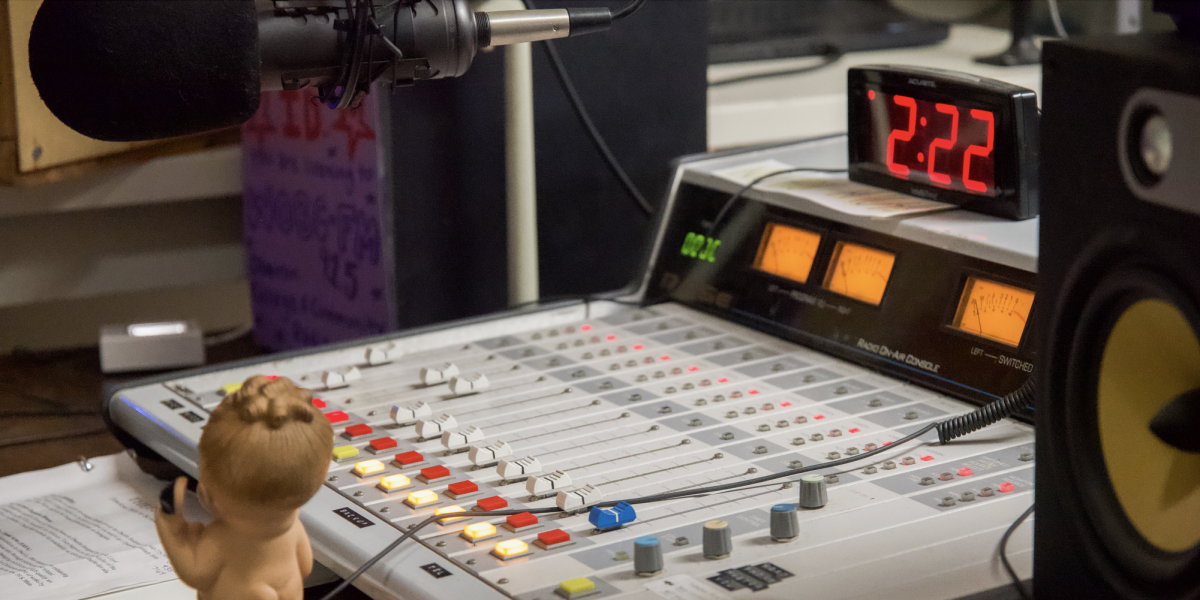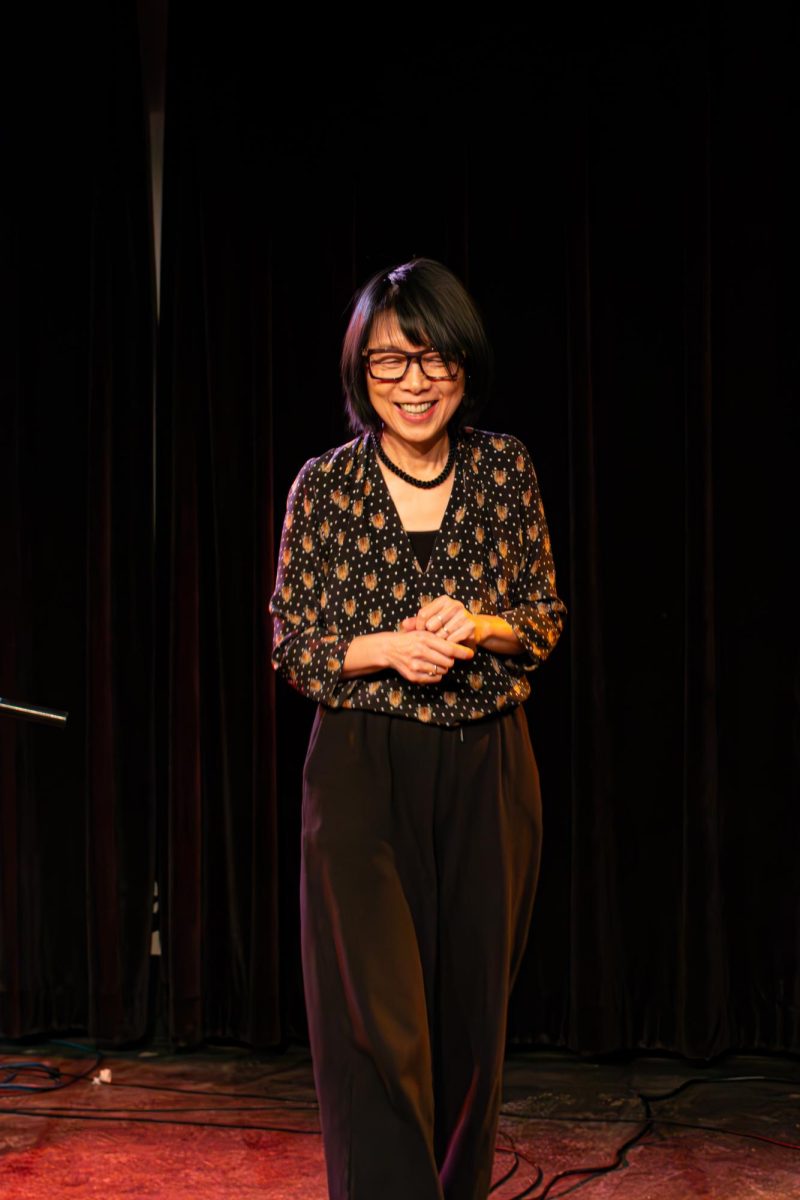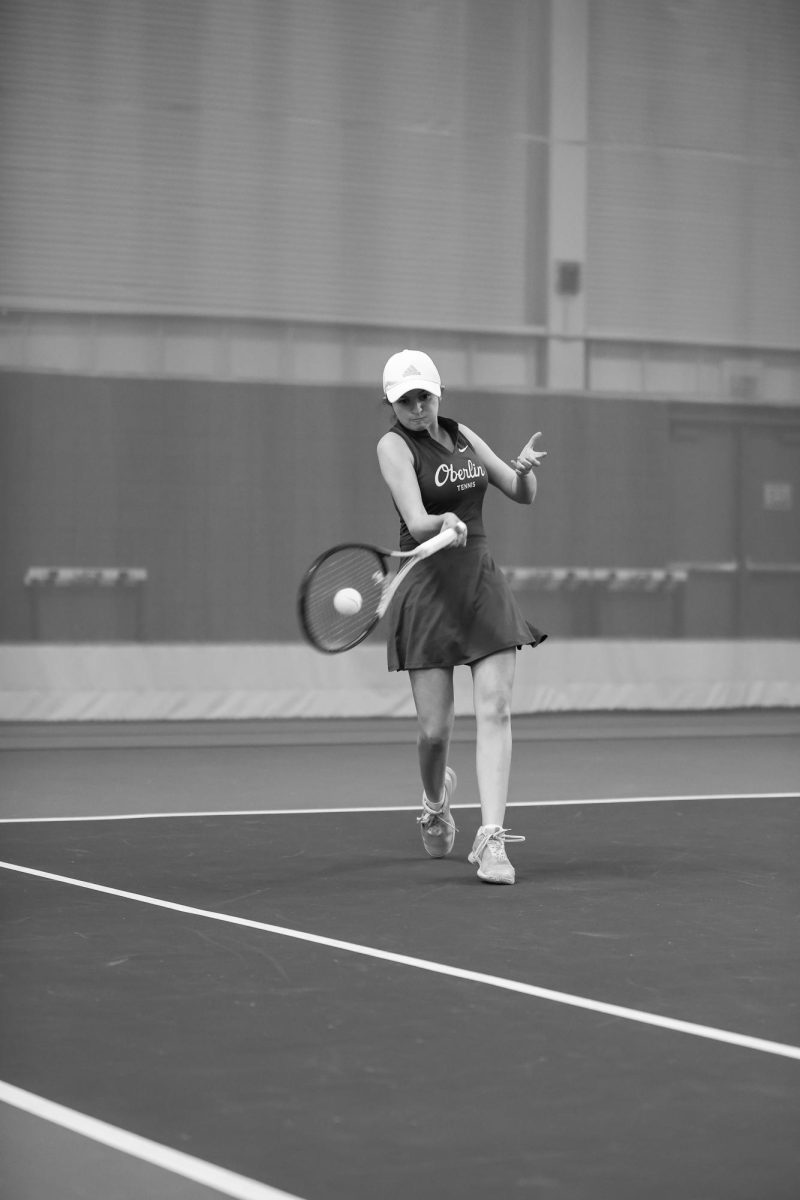Off The Cuff with Michael Reynolds, Thru-Hiker
Michael Reynolds, preparator at the Allen Memorial Art Museum, who spoke Sunday on his experiences hiking the Pacific Crest Trail.
November 9, 2012
Could you talk a little bit about how you put everything on hold for that period of time and went and hiked?
The way I’ve been able to do it is to start planning it years in advance, and then try to organize my life around it. I decided to go four years ago and I picked this year because it’s the first year that we don’t have any kids graduating from high school or college.
And you just sort of left everything for half a year?
My wife took care of the house and finances and kids. I heard of a guy on the trail who had returned home after one of these hikes and his wife was gone, the house was empty. [Laughs.] I came back, my wife was still here [and] my house still had all my belongings. So to do it you need to have some backup support.
So how do you prepare for a several-month-long trip?
Well I try to stay physically active and work out just about every day. So… before I go to work I go to [Philips Gym], lift weights and swim and run. … I bicycle everywhere.
Do you feel like you have to prepare mentally at all?
I’m [not] worried about [being able to] do it or anything like that, so it’s nothing I have to try to convince myself of mentally. The first time you tend to over-plan it because you’re not sure about what’s out there, but you realize there are lots of options available and you don’t want to plan it too closely.
It seems like it would be a very introspective sort of time, hiking by yourself.
Oh yeah, [there’s] lots of time to think about things. I think it can be kind of meditative, and your thoughts can kind of slow down and things can get a bit clearer.
Do you feel like at the end of these long hikes you’ve changed at all? I mean, obviously you’ve changed physically a lot.
On the days when I was trudging along, I would remind myself [that] the two greatest gifts of this trail, or this kind of activity, are patience and endurance, and the more boring it was, I would remind myself [that] this is even better for developing [those traits]. Plus it’s made me think more about things like, “What does it mean to be human and be able to walk like we can?” I think we have evolved to walk and run, unlike many other animals. And after being out for months, it just feels so right. Your body gets into a kind of condition it’s never been in before.
What was it like coming back?
I love being back. I love my job and my family and all that, but there are times when I’m walking around Oberlin and I’ll look up and realize I can’t see the horizon here; I can see buildings and trees, but it’s not like when you’re hiking in mountains and sometimes you get a 360 degree view. So sometimes I kind of miss being up in the high mountains. I’m happy to be here doing this work with the art museum and [to] be with my family, but [I] look forward to going again.
What would you say to someone who’s thinking about doing [the Pacific Crest Trail]?
Do it. [Laughs.] Do it. We have lives that are so full of things, and we don’t think we can make time to do something like that, but people spend all kinds of time doing stuff we don’t need to do. Put other things on hold and work your life around it. And go.


